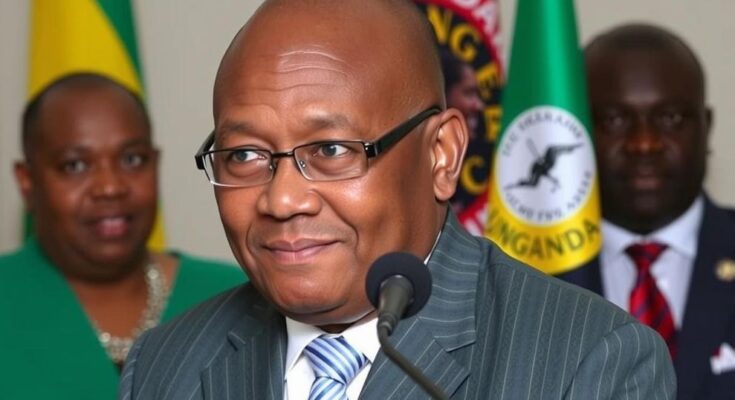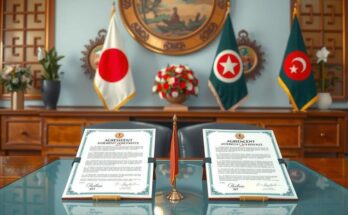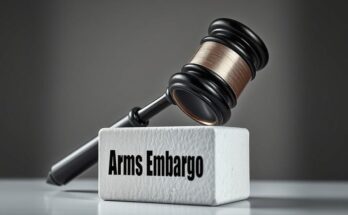Uganda’s military operation, Operation Shujaa, in the eastern DRC is under scrutiny due to allegations of double dealing, specifically claims of support towards the M23 rebel group. While the operation has achieved some security improvements against the ADF, the rebels continue to extend their geographical influence, resulting in spiking violence in previously safe areas. Uganda’s actions are intertwined with economic interests, particularly in the gold trade, complicating the narrative regarding its motivations in the DRC.
Ugandan military involvement in the eastern Democratic Republic of Congo (DRC), specifically through Operation Shujaa aimed at combating the Allied Democratic Forces (ADF), has prompted mixed reactions among local populations and international observers alike. Launched alongside Congolese forces, this operation has notably driven ADF rebels out of significant positions near the Ugandan border. However, despite the successes, allegations have arisen regarding Uganda’s potential secret support for another rebel group, M23, leading to questions about Kampala’s true intentions in the region.
While many residents have experienced improved security—evidenced by lifted curfews in cities such as Beni and the reopening of schools—the ADF remains a formidable threat. Reports indicate that the group’s geographical reach has expanded, allowing them to execute attacks in previously safe areas throughout Ituri province. Despite assertions of weakening logistics and operational capacity, the ADF’s violent tactics against civilians persist as a means of retaliation following military setbacks.
The dual focus of Uganda’s mission on both security and economic interests complicates the situation further. Critics suggest that Operation Shujaa serves Ugandan economic ambitions, particularly in gold trade, rather than an unmitigated commitment to neutralize threats from the ADF. The influence of neighboring Rwanda and its support for M23 adds an additional layer of complexity, leading to delicate regional dynamics that Uganda must navigate. Recent infrastructure projects planned by Uganda aim to enhance economic ties with the DRC while concurrently managing these multifaceted challenges.
Ultimately, Uganda’s strategic approach appears to revolve around balancing its own economic interests and maintaining stability in the DRC, even as scrutiny over its military operations continues. Too often, military moves seem aligned with national interests rather than a deep-seated commitment to regional security and peace.
The ongoing military operation involving Uganda in the eastern DRC is crucial for understanding the regional dynamics shaped by armed groups like the ADF, which has links to the Islamic State and is responsible for a significant number of civilian casualties in the area. The complexities of Uganda’s military engagement further complicate matters, as allegations of supporting rival factions like M23 raise concerns about their true objectives. The DRC’s strategic importance to Uganda, highlighted by lucrative trade routes and natural resources, underscores the economic motivations behind military operations within the region. This context is essential in analyzing both the military strategy and the accompanying allegations of duplicity.
In conclusion, Uganda’s military operations in the DRC, although aimed at countering the ADF, are viewed through a broader lens of regional and economic interests. The ongoing accusations regarding possible support for rival factions and the expansion of the ADF’s influence raise significant questions about Uganda’s commitment to regional stability. As these dynamics evolve, the challenge will remain for Uganda to balance its security interests with the need for genuine cooperation in combating the insurgent threats plaguing eastern DRC.
Original Source: www.rfi.fr




